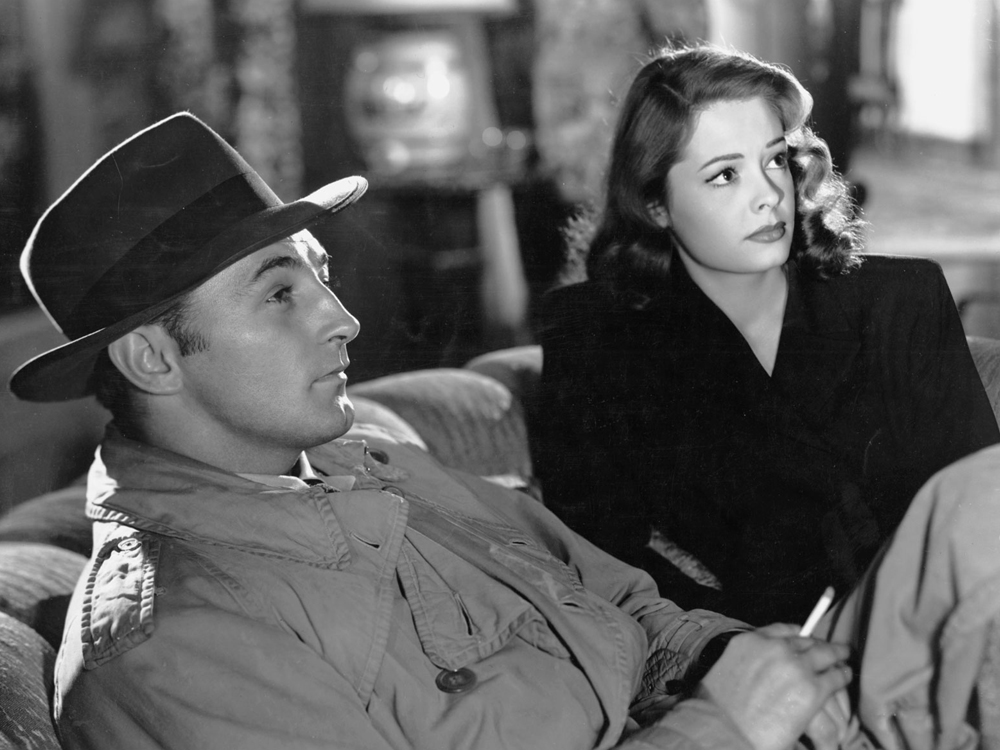
Jeff Bailey appears to be an ordinary gas station attendant in a small California town. When he is called to a meeting with the slick gangster Whit Sterling however, Bailey is forced to reveal to his girlfriend that his real name is Jeff Markham and that he is, in fact, a private detective.
“Near the Plaza was a little cafe called La Mar Azul, next to a movie house. I sat there in the afternoons and drank beer. I used to sit there half asleep with a beer in the darkness, only the music from the movie next door kept jarring me awake. And then I saw her - coming out of the sun. And I knew why Whit didn’t care about that 40 grand.”
Jeff
“Most crime movies begin in the present and move forward, but film noir coils back into the past. The noir hero is doomed before the story begins – by fate, rotten luck, or his own flawed character. Crime movies sometimes show good men who go bad. The noir hero is never good, just kidding himself, living in ignorance of his dark side until events demonstrate it to him. Out of the Past (1947) is one of the greatest of all film noirs, the story of a man who tries to break with his past and his weakness and start over again in a town, with a new job and a new girl. The movie stars Robert Mitchum, whose weary eyes and laconic voice, whose very presence as a violent man wrapped in indifference, made him an archetypal noir actor. The story opens before we’ve even seen him, as trouble comes to town looking for him. A man from his past has seen him pumping gas, and now his old life reaches out and pulls him back.”
Roger Ebert1
“In Love and Death in the American Novel, Leslie A. Fiedler notes how “The European writer and the American alike learn to distinguish between feminine and female, to split Woman into Dark Lady and Fair Maiden, saviour and tempter, between whom the helpless male is eternally torn.” Out of the Past clearly belongs in this tradition, having Jeff romantically involved with both cynical femme fatale Kathie and idealistically ‘nice’ Ann Miller, a contrast neatly summed up by one of the film’s most memorable exchanges; when Ann insists Kathie “can’t be all bad. No one is,” Jeff responds, “Well she comes the closest”.”
Brad Stevens2
“A woman and a man sit on a moonlit beach. She’s a mobster’s girlfriend, who shot him and absconded with $40,000. He’s the private eye sent to bring her back. He’s found her here, in Acapulco, and fallen for her. They kiss, and she pleads with him not to take her back: “I didn’t know what I was doing. I didn’t know anything except how much I hated him. But I didn’t take anything.” She moves closer: “Don’t you believe me?” “Baby,” he responds, plummeting into another kiss, “I don’t care.” Is there a moment in film noir that better captures a hero’s fall from grace? The woman who is no good, the man who can’t help himself, the existential choice that seals both their fates – it’s all there on the luminous sand.”
Christopher Orr3
- 1Roger Ebert, “Out of the Past”, www.rogerebert.com, July 2004.
- 2Brad Stevens, “Home of the Weak: Out of the Past and four ways of framing film noir”, BFI, November 2019.
- 3Christopher Orr, “The Movie Review: 'Out of the Past’”, The Antlantic, July 2004.

